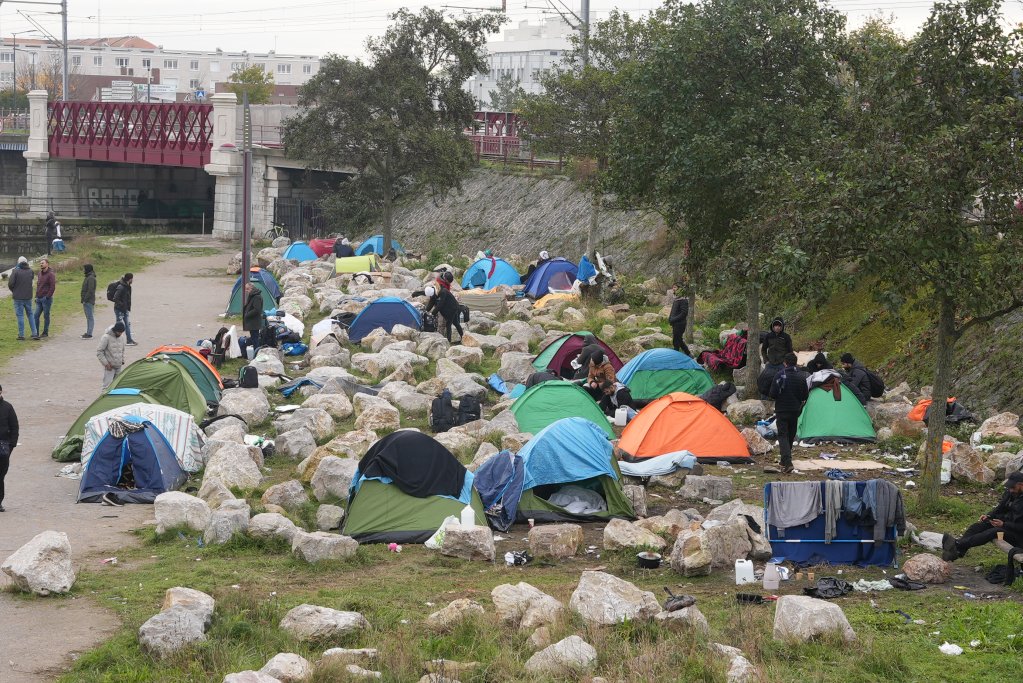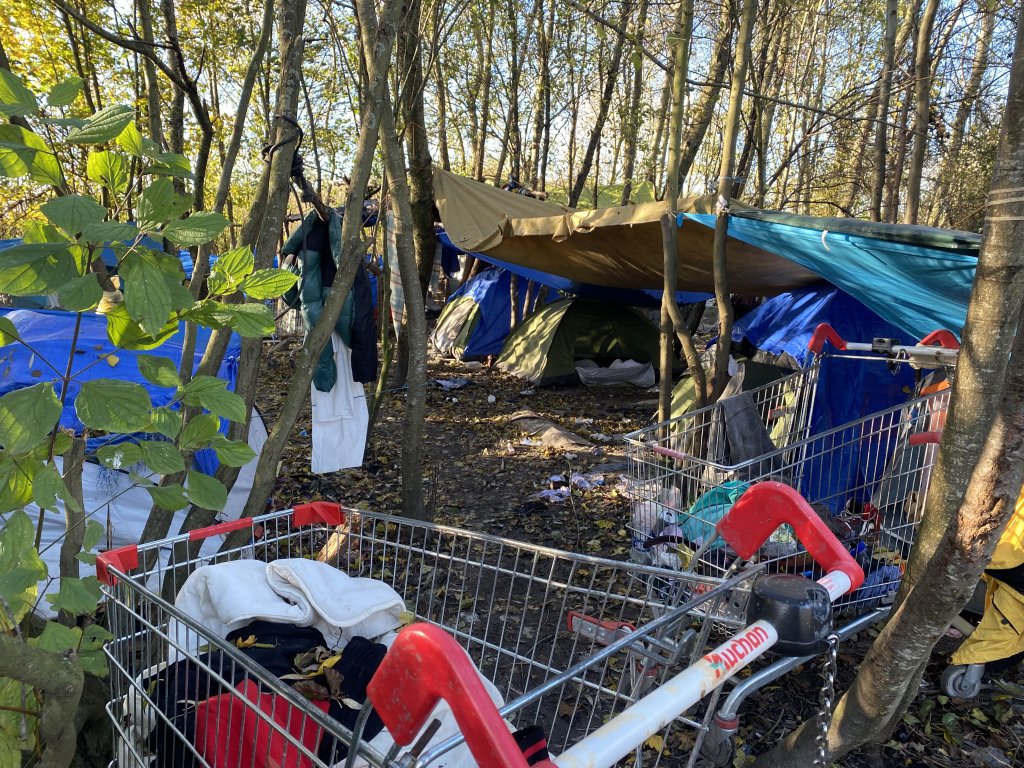Single women living in the migrant camps in northern France are particularly vulnerable. They are exposed to the risk of rape and forced prostitution. Associations conduct patrols within the camps to identify these women and provide them with protection and safety.
By Leslie Carretero, special correspondent in Calais
Adam plays in the yard with a small red truck. Khouloud watches him, smoking her cigarette a little further away. The boy is only two years old, he has spent his entire life on the move. The story of his mother, of Kuwaiti and Syrian origin, is confusing. What we understand is that she has no more news of the father of her child, a Syrian she met in Turkey. "He fled to Germany when I told him I was pregnant." The 26-year-old woman joined the north of France with the aim of reaching the United Kingdom. She would not say more.
On this November afternoon, Khouloud is resting at the Secours Catholique day center in Calais. A wing reserved for women welcomes migrants from the region four times a week. A refuge for these single women, with or without children, who come here to find comfort.
Khouloud takes the opportunity to call her loved ones while her son plays with a volunteer on the association's premises. What Adam likes most is the sound of the cash register found in a toy bin.
Read AlsoJumping onto trucks in Calais, the last resort for migrants without money
'Extremely difficult situations'
On that day, barely ten of them had come to the center. Most of them are housed in a house in Calais managed by an association. "At the moment, we receive fewer people but in September and October, there could be up to 60 people per day," Mariam from the Secours Catholique explained.
This Moroccan woman, who has been living in France for over 30 years, is responsible for picking up women from camps during patrols in Calais and finding them accommodation in the associative or citizen networks. "I am faced with extremely difficult situations," she confessed.

Mariam tells the stories of these migrants as if she didn't want to forget anything. Sometimes, when the stories are too hard, her eyes fill with tears. "When they arrive, the women are quickly spotted by smugglers, who pretend to be their husbands and abuse them. Some told me that they were raped every night in their tent, sometimes by several men." Others are recruited into trafficking networks and forced to prostitute themselves to pay for their passage to England.
'It's very hard to be a single woman here'
Khouloud has finished her calls and now sits at a table with her son, who is happily enjoying chocolate spread. Across from her, Halima* nibbles on a small piece of bread while keeping Adam entertained.
Halima, a Somali woman, says she is 20 years old, though she appears closer to 15. She fled her home country to escape a forced marriage to a 70-year-old man. Halima arrived in northern France in September and spent a month and a half in the camps of Calais before being noticed by Mariam.

"It's very hard to be a single woman here," she says. Halima does not want to go into details but her attitude betrays a painful daily life in the "jungle" - the name given by migrants to designate informal camps. When she mentions her life on the street, she lowers her eyes and falls silent. Then, she raises her head and changes the subject: "I like coming to Secours Catholique, I feel like I'm getting back to a normal life."
Read AlsoChannel crossings: Investigation uncovers elaborate supply route across Turkey, Germany and France
Reaching England at all costs
If Halima does not give her real age, it is probably because she does not want to be taken into care by Child Welfare Services (ASE) as a minor. The Somali woman wants to stay as close as possible to the beaches of the northern coast to reach the United Kingdom. She has already tried seven times to cross the Channel on a makeshift boat. "The weather is not good at the moment, so departures are at a standstill," she said.
Humanitarian workers say they are receiving more women than in previous years in the Calais reception center. "They only have England in mind, by any means. They are ready to take all types of risks," Christine, a septuagenarian volunteering with Secours Catholique for three years told InfoMigrants. "That is also why they do not want to talk too much, they are focused on their final objective and fear that telling their story will put them in danger," Mariam added.
At the day center, it is not uncommon to come across soaked women or families, after a failed crossing attempt. Even on a boat, they remain more vulnerable than men. Women and children are often installed in the holds of boats. If there is a crowd movement, they are more exposed to the risk of being crushed by other passengers.
Mariam recalls her meeting with a young girl from the Middle East: "She arrived traumatized with her mother. She spent part of her crossing attempt trying to keep her sister alive. Her sister couldn’t breathe because she was crushed in the boat. She held her hand until help arrived. But they could do nothing, she had already died of suffocation".
*The first name has been changed.
Read Also'My father disappeared in the Channel': A survivor recalls migrant boat sinking off Calais
